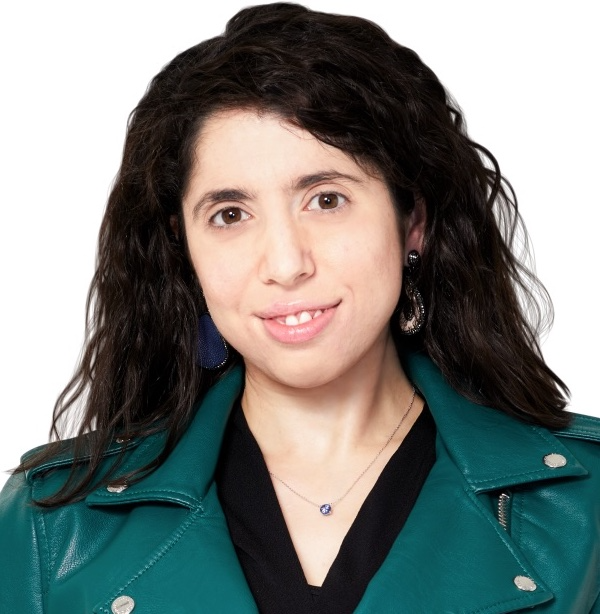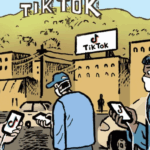Allie Lichtenberg will be speaking at AdExchanger’s Programmatic IO: Innovate event, taking place in Las Vegas from May 19-21. Click here to learn more and get your ticket.
Over the past 13 years, Allie Lichtenberg has seen many different facets of the ad tech industry.
After getting her start as a programmatic media buyer, she dipped her toe into working with publishers and DSPs until she finally fell in love with measurement – and with the flexibility and control that comes with independent consulting.
Her two most recent ventures, Ad Lucem (a solo endeavor) and Conifer Advisors (a joint effort with former PMG Head of Programmatic Justin Scarborough), are focused less on the day-to-day operations of media buying and more on the big picture that comes with developing media plans, vendor negotiations and go-to-market strategies.
The ultimate goal of both ventures, Lichtenberg told AdExchanger, is to work with brands who’ve “traditionally been stuck in that search and social loop.” She plans to work with brands in the DTC and ecommerce spaces to help them expand into other channels like CTV.
At the same time, many DTC and ecommerce brands have embraced what Lichtenberg calls an “incredibly innovative” measurement framework – one that hasn’t permeated into the display-rich, CTV-focused world that larger brands often inhabit and which Lichtenberg plans on sharing during this year’s Programmatic IO: Innovate in Las Vegas.
In advance of her presentation, “The New Measurement Fundamentals,” AdExchanger sat down with Lichtenberg to ask what she thinks the larger ad tech world needs to understand about measurement.
AdExchanger: What do you think are the biggest challenges to landing a career in ad tech measurement?
ALLIE LICHTENBERG: There is no one measurement solution that’s going to work for every person and every tactic.
We have more platforms than ever. The tracking is more complicated than ever. So one challenge is just being educated.
I do think there are measurement providers out there that make it a large part of their offering to provide that education. So there are master classes out there. There’s a lot of online tutorials, so if somebody wants to brush up, there’s a lot of great resources to do it.
You’ve talked about how measurement is a blend of art and science. Where is the art in it for you? What kind of skills does someone need beyond just being able to analyze data and numbers?
There’s a concept in advanced measurement now called triangulation. Like I said, there is no one single source of truth for measurement, and sometimes you need to measure the same piece of media with multiple different types of analysis. It’s a matter of bringing all those data points together and using the brand’s business knowledge to help them understand which one of those tests to rely on. And that is a process that very much requires art, intuition and a deep sense of the business.
So how quickly can someone pick that up? Does it just come with time?
Time helps. But I do think it is critical to have a measurement partner who specializes in that to guide you through the process. More brands should utilize that and not necessarily try to go at it alone, because it is an entire practice.
What are the current trends in measurement that you’re the most excited about?
Everybody talks about AI, right? And I’m gonna do it right now!
Two of the main testing formats, incrementality testing and MMM, are both very challenging to do. They’re time-consuming. They require very specialized roles to run these reports and do these analyses. What AI can do is potentially make it easier and more turnkey to set up these experiments.
Of course, I think there’s still going to be that layer of human intelligence on top of it. But if we can take some of the inefficiencies out of just getting those results in the first place, I think those will be huge.
On the other hand, are there any trends you’re skeptical of?
We maybe don’t need to spend as much time talking about all the different privacy methodologies and signal loss out there. Sometimes we do it to the extent that we get hung up by it, and it prevents us from moving forward in the measurement plan. We can take the privacy landscape as it is today, as imperfect as it is, with all the signal loss that exists today, and still create very fruitful measurement plans.
Speaking of which, what’s your take on the Google cookie reversal news?
It’s certainly interesting – and headache-inducing! But I think, in the immediate future, nothing’s gonna change. Long term, even if Google says cookies aren’t going away, they already have gone away in many aspects.
I see it as a nothingburger. The future of measurement really relies on cohort analysis and synthetic data testing, and all of those things can be done without cookies.
This interview has been lightly edited and condensed.















